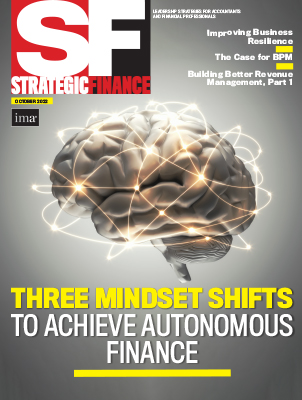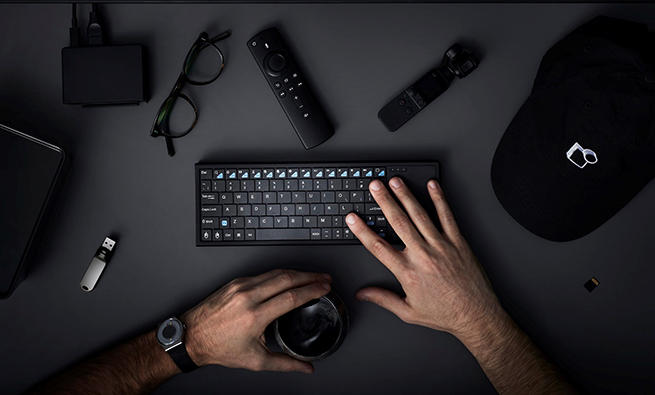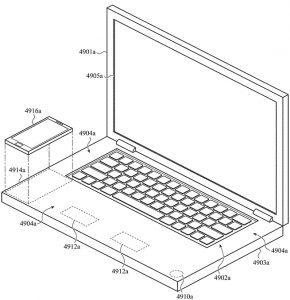New processing chips, new all-in-one or two-in-one configurations, curved monitors, ergonomic mice, multilens cameras, upgraded speaker systems—yet the system’s most essential interface, the 142-year-old QWERTY keyboard, is mainly forgotten.
Today, however, there are rumors that Apple is working on a revolutionary all-glass Mac keyboard, and a London-based start-up, Pentaform, is offering on the Indiegogo funding platform a conventional-looking keyboard called Abacus that’s a complete computer. Neither product is currently available, but you can get a preview of Apple’s new way of typing on a glass screen in the iOS 16 update.
Apple is one of the most successful tech companies at keeping quiet about what they’re working on next, but there’s a way to get a glimpse inside. Apple patents often foreshadow what’s to come, and the blog reports on and dissects the company’s latest intellectual property. For Apple, these patents can appear in sudden bursts. On July 5, 2022, the blog reported that Apple won 53 patents that day, covering touch ID for the Apple Watch among others, and a similar headline on August 30, 2022, claimed Apple won 66 patents that day.
HAPTIC GLASS
The speculation about an all-glass Mac keyboard derives from two Apple patents and a subtle feature embedded in the iOS 16 update that allows you to turn on haptic feedback for keyboard taps on your iPhone. The official release for the new phone operating system was September 12, 2022, and for those downloading it, there’s a haptic feedback toggle in the settings that can add a fingertip bump on the keyboard as you type. The tap-back is actually caused by a localized vibration through the phone’s glass. This haptic feedback add-on might also be Apple’s way of paving the way for a major Mac debut later.
Apple’s first patent for a glass keyboard was granted in August 2021 (#11,099,649). The patent papers describe a device that includes “a base portion flexibly coupled to the display portion and comprising a glass member defining a keyboard region configured to receive user input, a first haptic actuator configured to produce a first haptic output at a first area of the keyboard region, and a second haptic actuator configured to produce a second haptic output” for a trackpad area.
Patent #11,366,523 (June 2022) is even more interesting. The sketch Apple provided (see p. 59) shows an all-glass keyboard, a fingerprint sensor field (the circle at the bottom right), two wrist sensors that disable the trackpad while you’re typing, and a rectangle in the lower left to set your phone on for wireless inductive charging. In addition, “The sensing system (glass) may include a touch sensing system configured to determine the location of the touch input and a force sensing system.” The glass layer will be able to “locally deform” or actually depress with the force of the touch, mimicking the feeling of key travel as with mechanical keys. That flexibility in the glass also could be used to let you feel not only the depressing action but also edges of the keys to locate your touch.
Alex Blake of Digital Trends writes that kind of glass might remove the embedded keyboard mechanisms in MacBooks, allowing Apple “to make its laptops even thinner [and lighter] than they already are.”
Other benefits would involve swapping language keyboards quickly and easily, and Apple might even add the type of customizing you can get with mechanical keyboards, which let you change the key switches for a louder or softer click and a stiffer or softer touch. And would it be possible for an AI function to track and learn your peculiarities and weaknesses, which keys you most often miss, for instance, to slightly adjust key size and locations to correct that for you? If the haptic, deformable, all-glass Mac keypad ever gets developed, this certainly would offer a notably different way to interface with our computers.
One other recent experiment with keyboards, the Abacus personal computer by Pentaform, is in the final funding stage of its campaign on Indiegogo. This small keyboard raises the question: How much more portable would your PC be without its monitor? The base model is $149, and you can connect it to video devices such as smart TVs, computer monitors, tablets, and computer and gaming monitors. It has Windows 10 on board, and it will run Linux as well. The Abacus is definitely worth watching when it’s released in February 2023.
These two interesting exceptions hopefully will encourage other experiments with the oldest component still plugging along in our modern computers, the keyboard.





